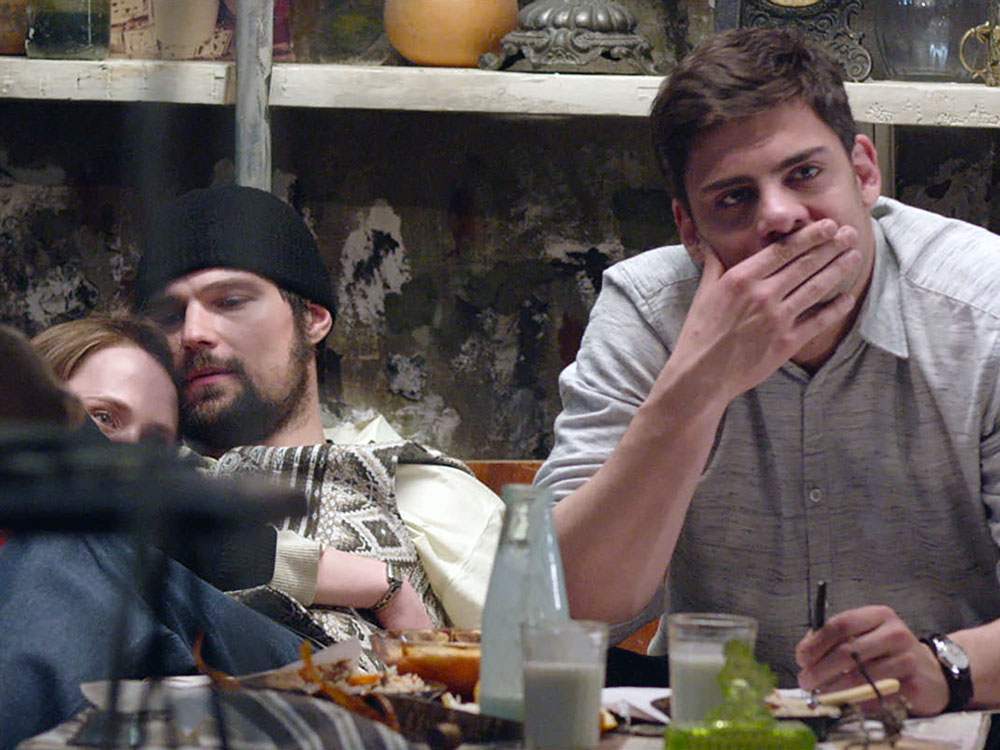Miss Universo en el Perú (Miss Universe in Peru), dir. Grupo Chaski (María Barea, Fernando Barreto, Fernando Espinoza, Stefan Kaspar, and Alejandro Legaspi), Peru 1982
The first programme in the No Master Territories series includes works that challenge the representation and commodification of women's bodies.
No Master Territories: Feminist Worldmaking and the Moving Image is dedicated to works of nonfiction that invent new languages for the representation of gendered experience. Concentrating on the period of the 1970s to 1990s, a time when women’s liberation movements took hold internationally, it responds to the contemporary imperative to recover the breadth of women’s contributions to film history in a global context. Curated by Erika Balsom and Hila Peleg, No Master Territories originated as a gallery exhibition and film programme of over 100 works by 89 individuals and collectives, on view at the Haus der Kulturen der Welt, Berlin, in summer 2022.
The screening will be introduced by Erika Balsom.
Programme
Schmeerguntz, dir. Gunvor Nelson and Dorothy Wiley, USA 1965, 14 min. 16mm
Gunvor Nelson describes the inspiration for Schmeerguntz as coming from her kitchen: ‘One day I was looking at all the gunk in the sink and thought of the contrast between what we do, and what we see that we ‘should’ be – in ads and things – and that was the idea right there, from the sink.’ In a dynamic, poppy montage, flashes of dirty diapers, pregnant bellies, used tampons and vomit puncture the glossy perfection of television and magazine images. A screening of the film at a meeting of the New York Radical Women in August 1968 sparked the idea to protest the Miss America pageant the following month.
Up Against the Wall, Miss America, dirs. Newsreel (Bev Grant and Karen Mitnick Liptak), USA 1968, 6 min. 1968, 16mm (digital transfer), English
Galvanized by the critical approach to beauty pageants seen in Gunvor Nelson and Dorothy Wiley’s Schmeerguntz (1965), the New York Radical Women authored a ten-point statement inviting ‘women of every political persuasion’ to protest the 1968 Miss America pageant in Atlantic City. With a flair for spectacle, they took aim at the contest’s consumerism, militarism, racism and misogyny. Bev Grant and Karen Mitnick Liptak of the Newsreel collective, a group of leftist filmmakers committed to the production of counterinformation, documented the event. In a nod to the idea that beauty competitions are tantamount to livestock auctions, the protest included the crowning of a sheep as an alternative Miss America.
We Aim to Please, dirs. Robin Laurie and Margot Nash, Australia 1976, 12 min., 16mm (digital transfer), English
With anarchic irreverence, Robin Laurie and Margot Nash assail the conventions that govern the representation of women’s bodies and propose a radical alternative. Made with a $1,300 grant from the Australian Experimental Film Fund, We Aim to Please took shape intermittently over one year, when the filmmakers could borrow equipment and find time to work alongside their other commitments. In response to the expectation that women exist solely to satisfy male desire, the film offers visually striking images of female friendship and bodily autonomy. Jettisoning norms of avant-garde seriousness, Laurie and Nash embrace humour as a feminist weapon.
Miss Universo en el Perú (Miss Universe in Peru), dir. Grupo Chaski (María Barea, Fernando Barreto, Fernando Espinoza, Stefan Kaspar, and Alejandro Legaspi), Peru 1982, 39 min., 16mm (digital transfer), Spanish with English subtitles
The backbone of Miss Universo en el Perú is found in a juxtaposition of two events that took place simultaneously in Lima in July 1982: the Miss Universe beauty pageant and the sixth national congress of the Peruvian Peasant Confederation. With an eye for irony, the Grupo Chaski conducts interviews and refilms television broadcasts to craft a pointed indictment of the alliances between imperial and patriarchal power. Throughout, close-ups of women’s faces appear, staring defiantly into the camera, returning the gaze of an apparatus that habitually objectifies them.
Gunvor Nelson describes the inspiration for Schmeerguntz as coming from her kitchen: ‘One day I was looking at all the gunk in the sink and thought of the contrast between what we do, and what we see that we ‘should’ be – in ads and things – and that was the idea right there, from the sink.’ In a dynamic, poppy montage, flashes of dirty diapers, pregnant bellies, used tampons and vomit puncture the glossy perfection of television and magazine images. A screening of the film at a meeting of the New York Radical Women in August 1968 sparked the idea to protest the Miss America pageant the following month.
Up Against the Wall, Miss America, dirs. Newsreel (Bev Grant and Karen Mitnick Liptak), USA 1968, 6 min. 1968, 16mm (digital transfer), English
Galvanized by the critical approach to beauty pageants seen in Gunvor Nelson and Dorothy Wiley’s Schmeerguntz (1965), the New York Radical Women authored a ten-point statement inviting ‘women of every political persuasion’ to protest the 1968 Miss America pageant in Atlantic City. With a flair for spectacle, they took aim at the contest’s consumerism, militarism, racism and misogyny. Bev Grant and Karen Mitnick Liptak of the Newsreel collective, a group of leftist filmmakers committed to the production of counterinformation, documented the event. In a nod to the idea that beauty competitions are tantamount to livestock auctions, the protest included the crowning of a sheep as an alternative Miss America.
We Aim to Please, dirs. Robin Laurie and Margot Nash, Australia 1976, 12 min., 16mm (digital transfer), English
With anarchic irreverence, Robin Laurie and Margot Nash assail the conventions that govern the representation of women’s bodies and propose a radical alternative. Made with a $1,300 grant from the Australian Experimental Film Fund, We Aim to Please took shape intermittently over one year, when the filmmakers could borrow equipment and find time to work alongside their other commitments. In response to the expectation that women exist solely to satisfy male desire, the film offers visually striking images of female friendship and bodily autonomy. Jettisoning norms of avant-garde seriousness, Laurie and Nash embrace humour as a feminist weapon.
Ticket information
- All tickets that do not require ID (full price, disabled, income support) can be printed at home or stored in email
- For aged-based concession tickets (under 25, student) please bring relevant ID to collect at the front desk before the event.
Members+ and all Patrons gain free entry to all cinema screenings, exhibitions, talks, and more.
Join today as a Member+ for £25/month.











no. 236848.